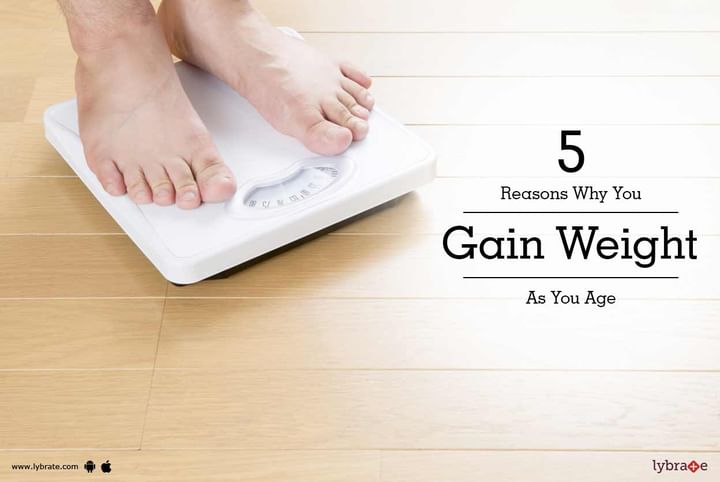5 Reasons Why You Gain Weight As You Age
It’s frustrating to see that though there is little change in diet, weight gain becomes normal as we get older. ‘Tyres’ around the tummy and heavy hips are often seen as a sign of being middle aged. There are many reasons for this change in the rate of weight gain. Some of them are:
-
Lower metabolic rate: As children and teenagers, the body is constantly growing and changing and hence has a high metabolic rate. Metabolic rate refers to the speed with which fat is burned to produce energy. After the age of 30, this metabolic rate naturally slows down and fewer calories are burned. This leads to the accumulation of fat. The only way to boost your metabolic rate and burn fat is by exercising.
-
Less muscle mass: With age, the muscles in the body also begin to shrink. Thus, instead of forming muscle, fat cells are formed as a result of digestion. When comparing muscles and fat cells, the former burn more calories and hence when they are unavailable, the rate of burning calories is lowered leading to weight gain.
-
Weight gain in menopause: When it comes to women, menopause is another trigger for weight gain. This is because, this condition is marked by hormonal imbalances. This leads to a sudden drop in estrogen levels that triggers a response in the body to draw out more estrogen from the fat cells. Ultimately, this leads to the formation of more fat. Men too can suffer from hormonal imbalances as they age. This is seen by a drop in testosterone levels that leads to abdominal weight gain.
-
Sedentary lifestyle: As we get older, our lifestyle turns more sedentary. A sedentary lifestyle is very unhealthy and leads to not only weight gain, but a number of other problems as well. Without regular exercise, the body’s existing metabolic rate further reduces leading to accumulation of fat cells. To combat this, take half an hour out of your schedule every day to go for a walk, cycle or practice any form of exercise.
-
Stress: Stress not only affects your psychological health, but your physical well-being as well. Being under pressure or anxious can increase the cortisol levels in the body. This creates hunger pangs that lead to unhealthy snacking. When eating in a stressful condition, little or no attention is paid to the food being eaten or the messages your body is trying to give you. This often results in overeating that causes weight gain. If you wish to discuss about any specific problem, you can consult a doctor and ask a free question.



+1.svg)
